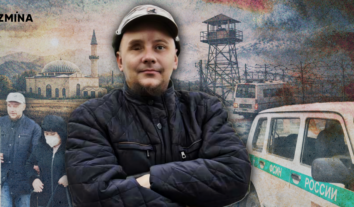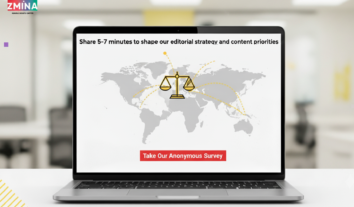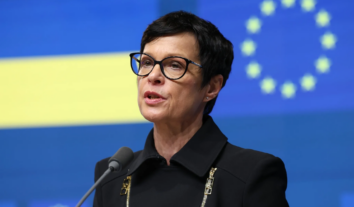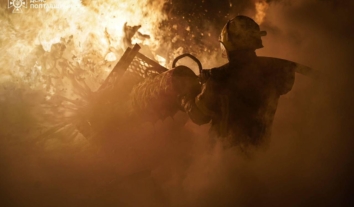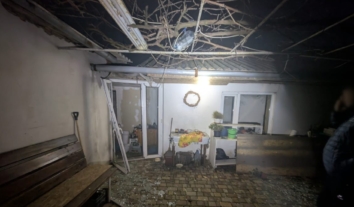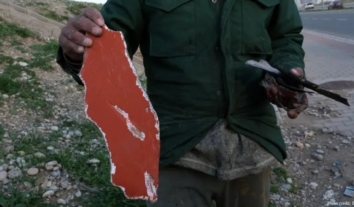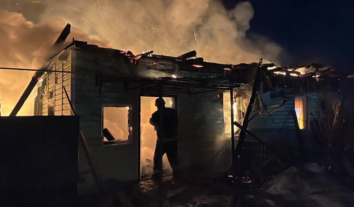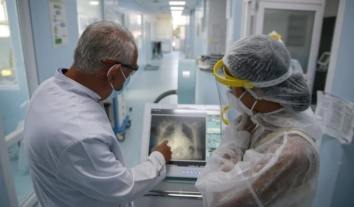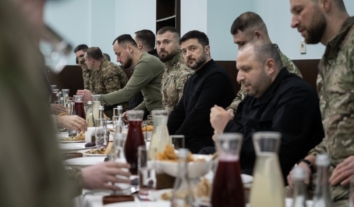Two years after tragedy: Is there any progress in investigation into shootings on Maidan?
Two years have passed since the tragic events of Euromaidan protests. Then, the protesters, who have later become known as the Heroes of the Heavenly Hundred, were shot in Kyiv city center, in Hrushevsky and Instytutska streets. The Ukrainian authorities, the Prosecutor General’s Office and the Interior Ministry have been promising the families of the victims to investigate killings and prosecute those responsible for two years already. However, the process is being delayed significantly. Why does it happen?
Processes delay
The promises to go through with it have been repeatedly heard from many officials and officers for two years. Yet in November 2014, Yevhenia Zakrevska, the lawyer of the families of the Heroes of the Heavenly Hundred suggested on the air of Hromadske TV that Interior Minister Arsen Avakov obstructed the investigation into those murders. A month later, the Security Service of Ukraine, headed then by Valentyn Nalyvaichenko, claimed it would assist the Prosecutor General’s Office in this case. However, Prosecutor General Viktor Shokin, who promised to go through with it, has not made great progress so far.
As a reminder, it has been he whom the activists, politicians and the public have repeatedly accused of delaying important investigations, lack of progress in fighting corruption and reform of the prosecutor’s office. The President of Ukraine has also made numerous statements on the case of the Heavenly Hundred.
“The investigation progressed very slowly during a year after the Euromaidan events. The reason for that was partly the lack of coordination and mess caused by overlapping and competing among the powers in the agencies investigating crimes. The Prosecutor General’s Office, the Interior Ministry and the Security Service of Ukraine were responsible for the investigation,” comments Maria Huryeva, the media and communications expert at Amnesty International in Ukraine.
According to political expert from Odesa Yaroslav Katolyk, there is a number of subjective reasons except such objective difficulties in the case as thousands of participants, partially destroyed evidence at the crime scene as blood on the pavement, shells, body position, etc. The subjective reasons include interference of senior officials and politicians, who gave the criminal orders and guarantee impunity for its performers, in the process.
The expert believes that the investigation is delayed for two reasons. The first is a red tape when the documents submitted for signature or authorization can lie on the tables of different officials for a month. The second reason is peculiarities of the staff of the prosecutor’s office.
“We need to understand that the prosecutors are law experts, so they can use certain means to hamper the reform through the court,” Katolyk comments.

In addition, according to the expert, the government officials are often the henchmen of certain political forces. Therefore, these forces are using their influence to keep “their” people at important positions.
“Thus, the abovementioned delay in the reform of the prosecution is used, including for negotiating and haggling with other forces that also have a strong influence on the prosecutor’s office and ‘their own people’,” Katolyk says.
He draws attention to the fact that the red hot facts of the investigation appear during political crises and confrontations.
“For example, the statement about detection of the weapons, which was used to kill protesters was made amid a huge scandal relating to the resignation of Economy Minister Aivaras Abromavicius who had accused Ihor Kononenko, the close ally and business partner of Petro Poroshenko, of corruption,” the expert notes.
Progress
The coordination of various elements of the investigation has improved after the establishment of the Special Investigations Department at the Prosecutor General’s Office of Ukraine in December 2014, Amnesty International claims.
Volodymyr Bondarchuk, the son of hero of the Heavenly Hundred Serhiy Bondarchuk who died on February 20, 2014, also agrees that the situation got off the ground after the Special Investigations Department had been set up.
“The department was set up not because the PGO’s leadership wanted to establish it. The then Prosecutor General was Vitaliy Yarema. It was done under tremendous pressure from the lawyers’ group, the families of Heavenly Hundred and the public. It was decided on the need for such a body,” he said.
About five investigators worked in the early stages of work of the department. Later this figure reached eighteen people. Until recently, three investigators dealt with the case of February 20. It was not enough, Bondarchuk says. There was also no logistical base, including the reagents for conducting examinations and other equipment for comprehensive work. Later, after the interference of the lawyers and the family members, the staff dealing with the case expanded to 35 investigators. However, this number is also not enough.
“The representatives of our organization met with the victims of abuse by law enforcement officers during Euromaidan protests, relatives of those killed during the protests, as well as lawyers and investigators working on their cases. Later we found out that the Department had conducted several hundreds of investigative activities during 2015, particularly, the forensic examinations, identifications, questioning of victims and witnesses,” the Amnesty International expert notes.
November 2015, head of the Special Investigations Department Serhiy Horbatiuk told the media that more than a thousand police officers had been already under investigation in connection with the Euromaidan events. Two hundred of them were officially notified of suspicion. November 20, 2015, the Prosecutor General’s Office of Ukraine released on its website the statement about a total number of suspects in Euromaidan cases. In particular, it referred to arbitrary detention and prosecution of peaceful protestors and other issues not related to police violence.
Their total number was 281, including 43 senior officials, 133 police officers, 14 judges, nine prosecutors, six local officials and 76 civilians, so-called “hired thugs.” According to the same information, 123 indictments were submitted to the court in respect of 55 persons. Twenty-eight judgments were delivered. However, no more details were provided and, therefore, it is impossible to find out the nature of those judgments.
The first noticeable indicators of progress have appeared only now, two years after Euromaidan, at the beginning of 2016, Amnesty International says. Namely, there is a progress in the investigation of some well-documented episodes of violence by the police.
“In particular, it is the collision on the Bankova Street on December 1, 2013, the ill-treatment and beating of protesters in and near the Hrushevsky Street on January 21-23 2014, and killing of over 70 people in the Instytutska Street on February 18-22, 2014,” Maria Huryeva from Amnesty International notes.
However, as of now, we know only about two police officers who were convicted in connection with the Euromaidan events in May 2014. Both of them were the ordinary soldiers of the internal forces that participated in the Euromaidan events. They received a suspended sentence of three and two years respectively for “abuse of authority” because of the ill-treatment of protester Mykhailo Havryliuk. Now he is the member of the Parliament of Ukraine.
Besides, only two ordinary Berkut riot police force officers were arrested in the spring of 2014. Currently, it is reported that they are under trial. In addition, four former Berkut commanders were arrested in August and October 2015 and accused of crimes against Euromaidan. Now they await trial.
“At the same time, we have seen reports on the found weapons and conducted examinations, in particular where it was established what weapons were used to kill or wound people in cases where bullets had been left in the body,” Bondarchuk said.
According to him, there are only 24 such bullets. The examination is held only by one-third, that is, only one-third of the available materials are evaluated. It is also associated with inappropriate material support of the department.
“There is some progress, but it is a drop in the ocean. The best results have been shown on February 20. But there are a lot of problems to investigate killings and injuries on February 18-19,” Bondarchuk says.
MP Mustafa Nayyem posted the results of the PGO’s investigations over two years after February shootings on his Facebook page.
However, something still impedes the investigation, Bondarchuk says. In particular, he stresses that now the actions of the Special Investigations Department and of the leadership of the Prosecutor General’s Office are often in conflict, thereby inhibiting all the processes as well.
“We see that the leadership of the Prosecutor General’s Office both under Vitaliy Yarema and Viktor Shokin offers a resistance to the investigation and its rapid completion. At the same time we see the Interior Ministry trying to hinder the investigation with all possible means. The problem is the interaction among various bodies – the Prosecutor General’s Office, the Interior Ministry, the Security Service of Ukraine,” Bondarchuk says.
A case in point is the weapons found in August 2015. However, they were transferred to the Prosecutor General’s Office six months later. In addition, the fact that the Berkut riot police force commander Dmytro Sadovnyk succeeded in fleeing evidences ineffective interaction between the Prosecutor General’s Office and the Interior Ministry. After all, the latter had to enforce house arrest. Both facts testify to a low level of cooperation between different agencies.
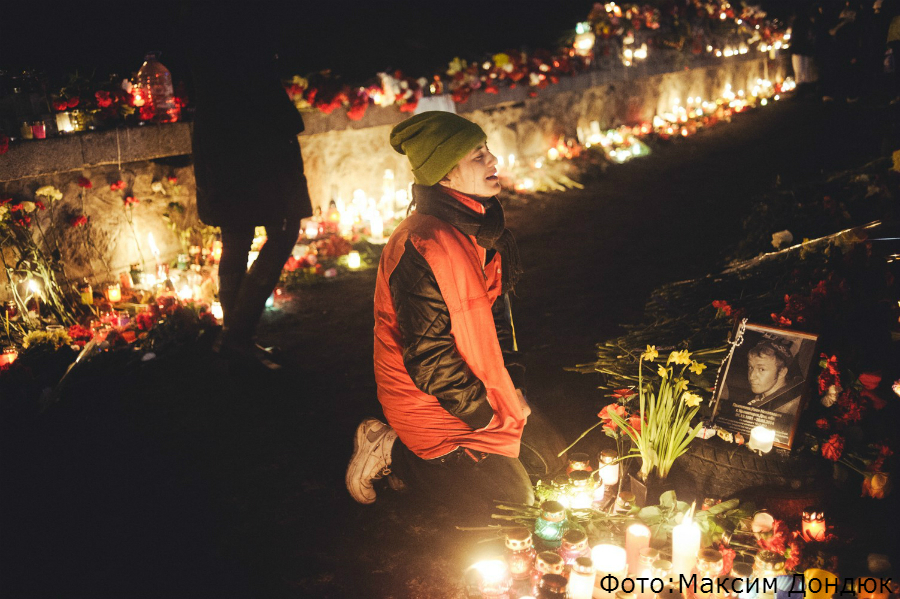
State bureau without investigation
November 12, 2015, the Verkhovna Rada of Ukraine passed the law providing for the establishment of the State Bureau of Investigation (SBI). January 14 this year, the President signed the law. According to this law, the SBI officials are the investigators dealing with the pre-trial investigation. In particular, the powers of the SBI officials involve the investigation into crimes committed by the law enforcement officers, the senior officials, i.e. those suspected in the organization of killings during Euromaidan protests.
Given the fact that most of the powers are transferred to the SBI directly from the prosecutor’s offices, the latter will now be deprived of all its investigative functions. This is done in favor of the SBI and the National Anti-Corruption Bureau of Ukraine.
“The establishment of the SBI is a long overdue step in the right direction. As the Bureau is established as an independent investigating authority that does not require the involvement of members of other law enforcement agencies, for example relating to investigation and operational search actions, it has the potential to meet the requirements of impartiality and an effective mechanism of the investigation,” Huryeva comments.
In the future, much will depend on ways of establishment of the SBI. The main criteria, which the SMI must comply with in its work, according to the human rights activists, are independence and impartiality, accuracy, timeliness, competence, involvement of victims and public scrutiny.
However, a few days ago, on February 19, the community rung the alarm. Head of the Special Investigations Department Serhiy Horbatiuk said at the roundtable meeting that the Prosecutor General’s Office would stop the investigation into crimes against Maidan for 2013-2014 on March 1. He named imperfect laws as the reason for that.
According to him, the Parliament did not stipulate the law properly as the powers of the officials of the Prosecutor General’s Office and the SBI are not agreed. So, it turns out that the Prosecutor General’s Office automatically gives up powers of investigation into Maidan crimes on March 1 and will have to transfer them to the State Bureau of Investigation. But it turns out that it is not yet formed.
“We are also concerned about the fact that the law comes into force no later than March 1 this year. However, as of now, neither the leadership nor the staff of the Bureau has been appointed. Even the commission responsible for the selection of candidates for the post of director has not yet formed,” Amnesty International emphasizes, Maria Huryeva says.
The Parliament, which should have elaborated the amendments to the law, is not working now. The next meeting is scheduled for March 15, i.e. after the law takes effect.
“Although President of Ukraine Petro Poroshenko publicly undertakes to prevent this, we can safely say that these facts do not work in favor of the international image of our country, not to mention the feelings of relatives of those killed on Maidan,” political analyst Yaroslav Katolyk says.
Amnesty International describes the absence of the procedure for transferring the Euromaidan cases from the Special Investigations Department at the Prosecutor General’s Office of Ukraine to the State Bureau of Investigation as the most pressing problem as of today.
Right to ignorance?
However, the relatives of the victims suffer from their ignorance very often as even if the investigation is still ongoing, not everyone and not always is informed about its progress and interim results.
According to Amnesty International, as of the beginning of 2015, only a few from among hundreds of victims of human rights abuses committed during Euromaidan protests knew whether their cases were being investigated. Only a small share of those, whom the organization contacted with, was interviewed as victims and no one had been informed by the authorities about progress in their cases since the complaints had been filed.
“Despite the ongoing progress in the investigations, we emphasize the need for a regular and timely provision of updated information on the progress of investigations to the victims. In addition, the victims should be informed about compensation guarantees,” Maria Huryeva from Amnesty International stresses.
Amnesty International documented eleven cases of victims of excessive use of force applied by the law enforcement officers in its report dedicated to the first anniversary of Euromaidan.
“These cases are just a small example of the many incidents of excessive or arbitrary use of force by the law enforcement during Euromaidan protests,” says the expert.
A year after the protests, these eleven victims, as well as hundreds of other victims, had no information on progress in the investigation into their cases. Most of them were not even questioned as witnesses first. Instead, almost all of them, on the contrary, were detained and questioned as suspects during the protests. The criminal proceedings against them were stopped by the Verkhovna Rada within the so-called “amnesty law”.
Currently, Bondarchuk says, it is necessary to insist on maintaining the integrity of work of the Special Investigations Department. In addition, Amnesty International adds, it is extremely important to ensure transparency of the results of any investigations for the public. This should be done in order to restore public confidence in the principle of the rule of law and to restore confidence in the authorities responsible for compliance with this rule.



